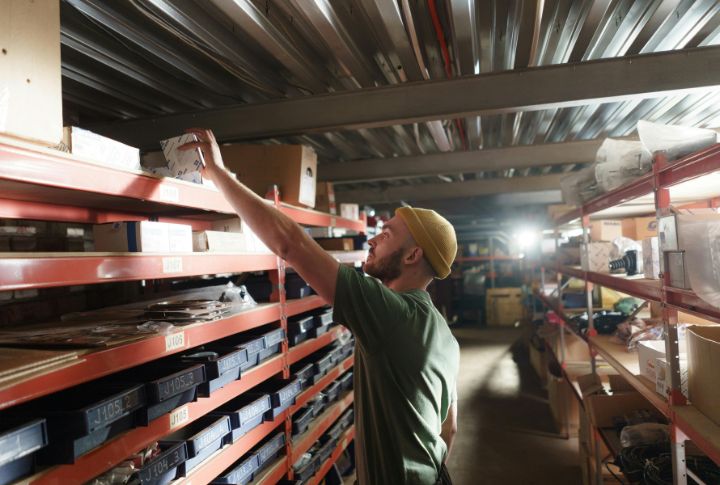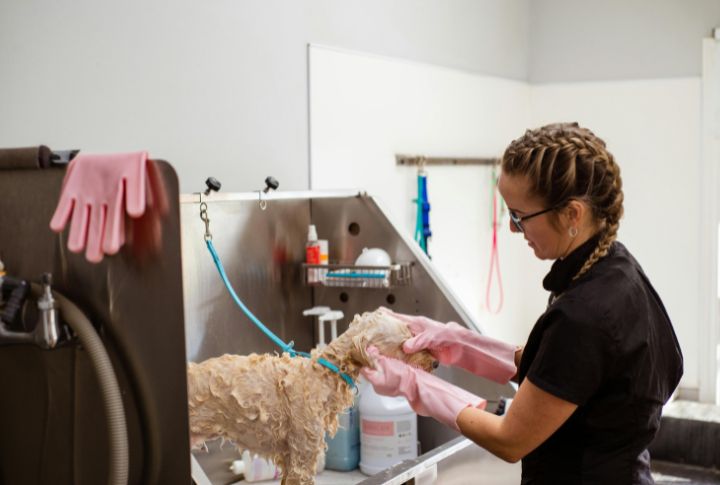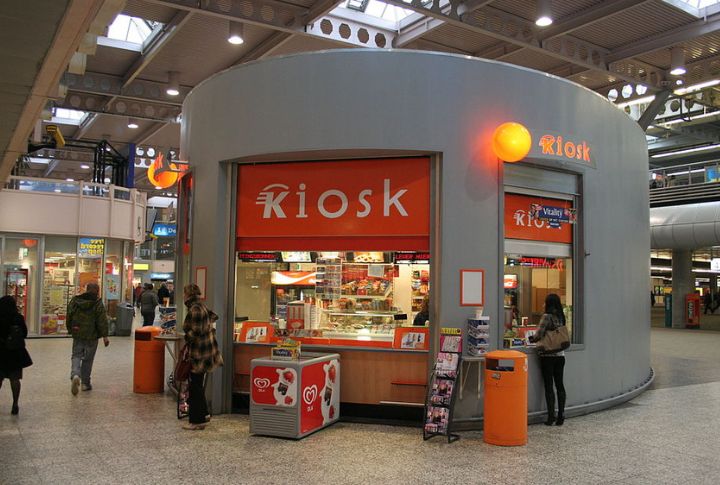
Your job might feel secure right now, but recessions have a way of exposing vulnerabilities nobody saw coming. Some roles vanish almost overnight when economic pressure builds, which leaves many workers scrambling at the worst of times. The pattern is predictable once you know what to look for, so here are the jobs walking a tightrope.
Telemarketing Representative

Telemarketing reps were once everywhere, dialing and selling nonstop. But with AI handling calls and consumers ignoring unknown numbers, these roles are shrinking. With the tech we have nowadays, telemarketing jobs are going to be among the first to vanish, as companies lean into automation during economic slowdowns.
Retail Cashiers

Every store used to depend on cashiers, who greeted shoppers and rang up sales day after day. With self-checkouts and mobile scanning, this is no longer needed. Technology is revolutionizing retail by turning formerly stable entry-level jobs into positions that may disappear from stores entirely.
Travel Agents

During economic downturns, travel agents feel the pinch first. Vacation bookings drop, and corporate travel spending vanishes, thereby creating a perfect storm. Agencies also cut staff fast because when people tighten their belts and spend less on trips, there are fewer details to manage.
Print Journalists At Local Newspapers

Local print journalists once chronicled every community story. Now, with readers moving online and ad revenue disappearing, newsrooms are shrinking fast. Thousands of jobs vanish, and many reporters are forced to pivot to digital-only platforms.
Real Estate Brokers In Luxury Markets

High-end property brokers might seem invincible, consistently landing big deals and enjoying luxury perks. But when a recession hits, wealthy buyers pull back, sales stall, and commissions, of course, disappear. That high-flying lifestyle is not guaranteed, and a downturn can wipe out even the most lucrative careers.
Event Coordinators For Corporate Functions

Corporate event coordinators command impressive influence, orchestrating high-stakes meetings and conferences that shape company culture. Economic slowdowns expose the vulnerability of this role, but many have survived by mastering virtual and hybrid events. It’s a shift that’s been accelerated by necessity.
Warehouse Packers For Non-Essential Good

When times get tough, people stop buying things they don’t really need. That means warehouse packers handling luxury items see their workload disappear. Companies can’t justify keeping staff when shipments drop dramatically during economic downturns, so these folks are sadly laid off.
Fashion Retail Buyers

Picking the season’s hottest items is a buyer’s specialty, but slower consumer spending changes everything. Orders shrink, inventory risks grow, and stores usually let buyers go first. Even with years of experience and strong industry ties, retail buyers are often first on the chopping block.
Customer Service Agents In Outsourced Call Centers

Outsourced call center agents are the frontline for customer inquiries, juggling dozens of issues daily. Yet technology is steadily replacing routine tasks, and budget cuts can come swiftly. Maintaining excellent service doesn’t prevent layoffs, and this is common in almost all outsourced call centers.
Advertising Sales Executives

Just imagine building your career on client deals and commissions, only to watch them disappear when marketing budgets get cut. Add to that the growing dominance of automated ad platforms (Google Ads, Meta), and personal pitches become less efficient in comparison.
Fitness Instructors At Boutique Studios

Boutique fitness instructors depend on people having extra cash for premium memberships. Once the recession hits, those expensive classes become luxuries nobody can justify. Schedules shrink overnight as clients disappear. Online teaching helps a little, but it can’t replace what they’re losing.
Ride-Hailing Drivers

Thousands of drivers log into ride-hailing apps daily, ferrying passengers across town. Drivers who once relied on steady rides find their earnings dropping quickly when fewer riders book trips. Sometimes companies scale back support, too, highlighting the fragile nature of gig work.
Home Renovation Contractors For Cosmetic Upgrades

Home renovation contractors thrive on cosmetic upgrades—luxury kitchens, new paint, and stylish interiors. But during slowdowns, homeowners prioritize essential repairs over decorative projects. Contractors see fewer jobs and canceled contracts, thereby making this type of work highly sensitive to shifts in consumer spending.
Recruiters Specializing In Startups

In startups, recruiters are the bridge between talent and growth. A dip in financing can quickly shake up recruiters’ roles, with freezes and cuts spreading fast. Roles that seemed secure aren’t actually secure since recruiters’ careers are intertwined with the unpredictable rhythm of startup funding and expansion.
Tutors For Standardized Test Prep

Many see tutoring for tests like the SAT or ACT as a non-essential expense. As families trim budgets, extra lessons are usually the first to go. Even experienced educators can see their roles vanish as families tighten their wallets.
Pet Groomers At Boutique Salons

Boutique pet groomers rely on owners spending extra money on their animals. Once the economy slows down, those expensive grooming sessions stop immediately. People still care for their pets, obviously, but they do it cheaply at home instead.
Subscription Box Curators

Revenue drops and cancellations rise whenever consumer spending falls—a reality subscription box curators know well. The work of creating personalized monthly experiences suddenly faces uncertainty. This shows how niche roles are vulnerable to economic swings that force consumers to cut optional luxuries.
Mall Kiosk Sales Associates

Specialty items, busy mall corridors, and friendly kiosk staff—this is retail at its peak. Mall kiosk sales associates already operate in high-pressure, low-margin environments, and when shoppers tighten their wallets and malls empty out, impulse buys dry up fast.
Freelance Workers

Unlike in-house design roles, freelance work is typically project-based and often among the first to be postponed or canceled when budgets tighten. Many companies choose to consolidate creative work under existing staff or rely on pre-made assets to save money. Those with established networks may continue to thrive, though.
Wedding Planners

Wedding planners coordinate ceremonies and receptions, but their role is surprisingly fragile. Their services fall into discretionary spending, and couples can defer, downsize, or plan events themselves when budgets tighten. Remember post-COVID weddings? So many couples made their way to the courthouse.
